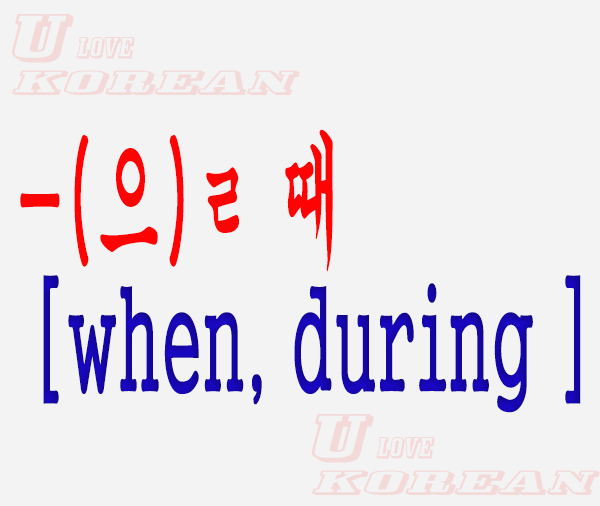Featured Posts
 A/V-기는 하지만, -기는 -지만
A/V-기는 하지만, -기는 -지만
1. Usage :
- A/V + 기는 하지만 is used by speakers to express different views on something.
- A/V-기는 하지만 uses the A/V once, while A/V-기는 A/V-지만 uses the same A/V twice.
- 기는 -> 긴 : when you speak, you can shorten ‘기는’ to ‘긴’
- ‘기는 하지만’ and ‘(이)기는 하지만’ attach an adjective/a verb stem and a noun respective
22.08.2023 | KOREAN SKILL | 0 Comments
 V-느라고
V-느라고
1. Usage :
1). V-느라고 is a little negative in nature.
2). 의지 : 하려고 생각해서 했어요.(think to do it)
: 하려고 한 것이 아니에요.(don’t think to do it)
- 감기에 걸리다, 기침이 나다, 넘어지다, 알다, 모르다, 일어나다, 도둑이 오다, 지갑을 잃어버리다, 시간이 없다, 길을 잃버리다, 사고가 나다.
21.08.2023 | KOREAN SKILL | 0 Comments
 A-아/어 보이다/ A-게 보이다
A-아/어 보이다/ A-게 보이다
1. Detail Explanation :
1) An expression used to indicate that one feels or guesses something by the appearance of something mentioned in the preceding statement.
2) Equivalent to “Looks like” or “Seems like”
23.08.2023 | KOREAN SKILL | 0 Comments
 V~지 그래요
V~지 그래요
- 'V~지 그래요' is used to offer a suggestion or recommendation to someone to do something.
- It has the meaning of "Why don't you......?" or "Why not.....?"
- It is a much weaker and softer express than ~도록 하다
12.09.2023 | KOREAN SKILL | 0 Comments
 취미와 취미 활동
취미와 취미 활동
'취미와 취미 활동' related vocabularies for beginner and intermediate korean learners.
10.09.2023 | KOREAN SKILL | 0 Comments
 -는/(으)ㄴ
-는/(으)ㄴ
1. –는/(으)느 is attached to a verb, an adjective or ‘noun +이다’ and used to modify a following noun, indicating a current action or state.
가: 어떤 날씨를 좋아해요?
What kind of weather do you like?
09.09.2023 | KOREAN SKILL | 0 Comments
 N이/가 아니다
N이/가 아니다
–이/가 아니다 is attached to a noun, negative –이다. In informal setting, 이/가 아니에요 is used for the present tense ending.
저는 학생이에요.
I am a student.
저는 학생이 아니에요.
I am not a student.
06.09.2023 | KOREAN SKILL | 0 Comments
 -(으)ㄹ 때
-(으)ㄹ 때
1. -(으)ㄹ 때 is attached to a verb, an adjective, 'noun+olr|', indicating a period of time when something or a situation continues or the moment when something happens.
가: 시간이 있을 때 뭘 해요?
- What you have time, what do you do?
나: 시간이 있을 때 영화를 봐요.
- When I have time, I watch movie.
05.09.2023 | KOREAN SKILL | 0 Comments
 A/V-습니다/ㅂ니다
A/V-습니다/ㅂ니다
1. Detail Explanation
We will use -(스)ㅂ니다 with a formal verb and adjective ending.
The present tense of the formal polite style is made by adding -(스)ㅂ니다.
We will hear and see this verb/adjective ending a lot on TV news or on newspaper, Meeting, Presentations, or lectures.
24.08.2023 | KOREAN SKILL | 0 Comments
 V-고 있다
V-고 있다
- Verb+고 있다 : Being(V-ing). This is a progressive grammar and can be used in all tenses(Past,Present, and Future tense).
- It has the same meaning as 는 중이다
- Present tense : -고 있다
- Past tense : - 고 있었어요
- Future tent : -고 있을 거예요.
27.08.2023 | KOREAN SKILL | 0 Comments
 A/V-기는 하지만, -기는 -지만
A/V-기는 하지만, -기는 -지만